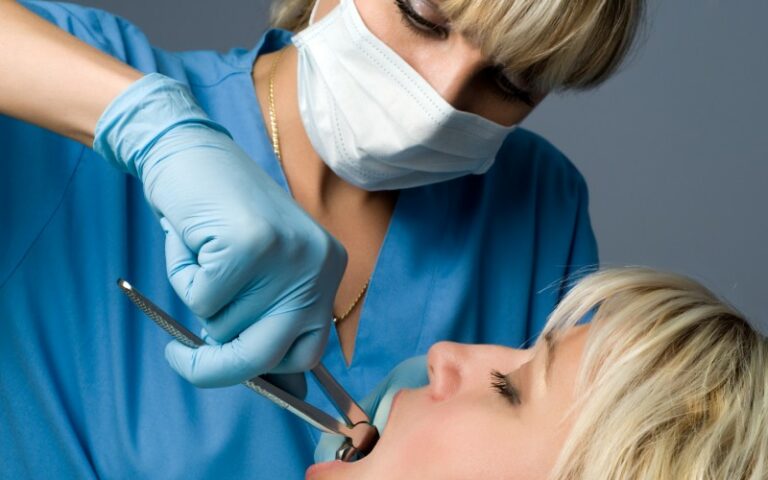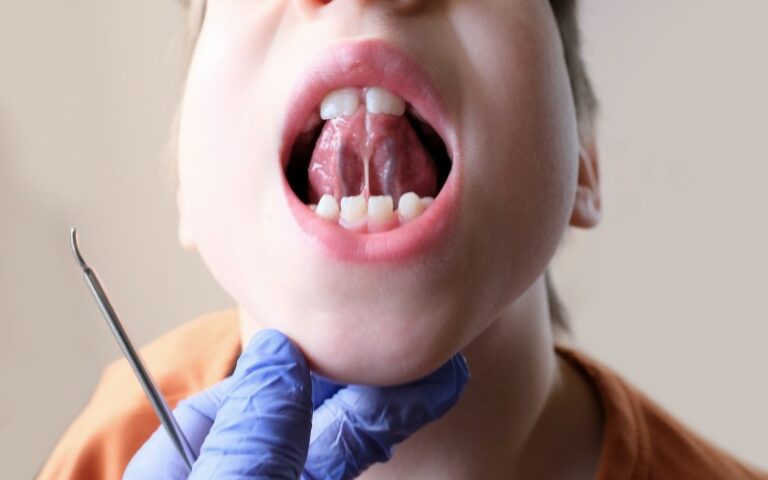Table of Contents
ToggleHow to Know if You Need Your Wisdom Teeth Removed
Your wisdom teeth are the last of the teeth to break through into the oral cavity. They are called your wisdom teeth because they officially appear between the ages of seventeen and twenty-five, also known as the wisdom years.
You do not always need to have your wisdom teeth removed, as it’s never recommended to have any teeth removed. This is because the extraction of teeth can cause shifts in the rest of the teeth and their alignments.
If your mouth isn’t big enough to accommodate for the extra teeth, their presence can cause a lot of pain and discomfort. If you are wondering whether or not you should have your wisdom teeth removed, then have a look at these signs and get ready to make an appointment with your dentist.

Pain and Irritation
One of the very first signs that your wisdom teeth are starting to break through is the pain that they cause during the process. If you consider how much pain you are in when the teeth start breaking through, you quickly understand why a baby cries so much during its teething phase.
The pain can be explained as anything from a constant ache to a sharp shooting pain when you chew. The pressure that the new teeth put on the gums and on the other teeth creates a sensitive environment throughout your mouth and not just at the location of the new teeth.
Some have even explained that the pain is not only within the mouth but also in the jaw, cheeks and sometimes even as far as the ears. If this pain persists consult with your dentist, it could be your wisdom teeth or another dental issue that needs addressing.
Difficulty Eating
This one usually goes hand in hand with the pain and irritation symptom. When you are experiencing discomfort in your mouth, you’ll find that you start avoiding certain foods. Something as simple as biting into an apple could become a difficult and painful action even though you are using the front teeth to bite and not the back teeth.
Sometimes you aren’t yet aware of the pain in your mouth, but there is a certain discomfort while chewing. Try to keep track of this discomfort, if it progresses, make an appointment to see your dentist.

Cysts and Infections
Gum disease and arrival of your wisdom teeth usually occur around the same time. While the teeth start to break through the gums, they cause a lot of swelling. When eating small pieces of food become lodged between the existing teeth and the swollen gums at the back of the mouth.
If the infection is not found quickly enough, it becomes worst and can create a cyst on the gums near the site. Due to the septic fluids that are now present in the mouth, you run the risk of spreading sores throughout your mouth in other areas that are sensitive or where the gum has abrasions.
If you practice good oral hygiene and floss regularly and you still end up with swollen gums and infection, there may be other forces at play. Something like your wisdom teeth can cause quite a shift in your dental health even though you are doing all the right things. Infections lead to other oral health issues such as bad breath and gum disease.
Sinus Issues
This is the least common of the signs that you might need to have your wisdom teeth removed, but it’s a possibility. When there is limited space for the teeth to break free through the gums, they begin to build up pressure while still in the jaw bone.
This causes the wisdom teeth to set roots close to the sinus walls making the sinuses sensitive and irritated. If your wisdom teeth is growing in the lower jaw, you’ll not have issues in the sinuses, as it’s only in the upper jaw that the sinuses will run close to the location of the teeth.
Pressure on your sinuses can cause toothache, earache, headaches, and even congestion. So, before you make appointments with other specialists, rule out the possibility of wisdom teeth first.
Cavities and Impacted Growth
Wisdom teeth can change the way that the other teeth are positioned within the mouth. When the wisdom teeth start creating space to break through, they begin to push the other teeth up against each other. Before the age of nineteen, the bones of the mouth have not yet hardened, so any extreme pressures can shift the other teeth from straight to skew.
When the teeth are skew and closely pushed up against each other, it leaves a lot of spaces for bacteria to grow. Due to the added sensitivity of the mouth, it makes it difficult to floss and use mouth wash without creating a painful experience.
This impacted growth and inability to clean all the folds cause cavities within the mouth, only creating more sensitivity and discomfort.

Different from Other Teeth
Wisdom teeth, unfortunately, cannot be treated like other teeth. So if they grow out skew, they cannot be straightened out with corrective braces. Unfortunately, there is no other procedure to make all the teeth fit in the mouth together.
And that is why wisdom teeth need to be removed once they start presenting and causing other dental issues. Sometimes only two of the teeth will need to be removed to create enough space to alleviate discomfort.
Removing Wisdom Teeth
You can go your entire life without ever being bothered by your wisdom teeth. Sometimes they can break through and settle into the mouth without any irritation. And in some rare cases, people do not grow wisdom teeth at all.
But if you are experiencing abnormal discomfort despite practising good dental hygiene. It’s recommended that you see your dental team and allow them to do the necessary examination to determine the course of treatment. It will probably comprise of an oral exam and x-ray to identify the placement of the teeth.
No matter your age, dental condition, and if you have a million questions, Dr. Sims can assist you or your young children in a professional manner and loves answering any of your questions or concerns. Dr. Sims grew up in Grimsby playing basketball, so he’s always up for talking about the Raptors! He’s also a football fan - go Buffalo Bills! In his free time, if he’s not watching a basketball game or football game, you’ll likely find him working out, cooking (got any new recipe ideas?), and of course, spending time with his amazing family.
- Tongue Tie Surgery: Medical or Dental? Your Complete Guide - February 28, 2024
- What to Eat After Tooth Extraction - January 16, 2024
- What Medical Professionals Treat Tongue Tie? - January 5, 2024











